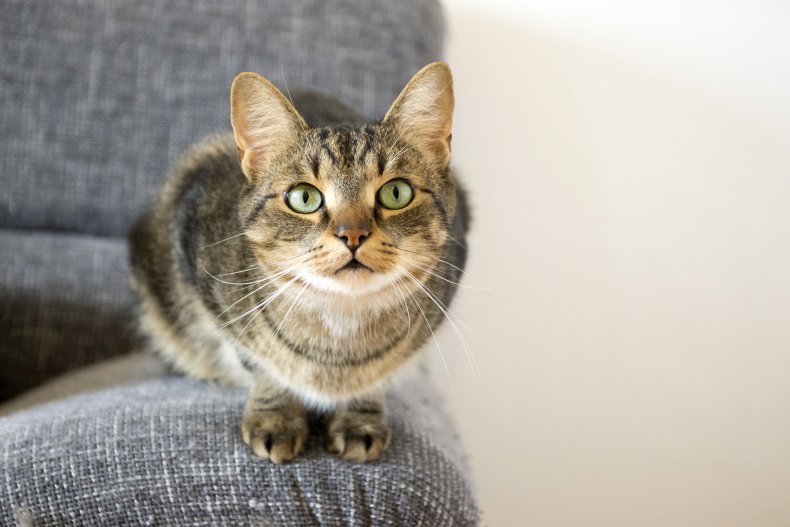Colorado House Cat Tests Positive for Bubonic Plague - Newsweek
A domestic cat has tested positive for bubonic plague in Jefferson County, Colorado, according to local health officials.
In a statement, Jefferson County Public Health (JCPH) said the cat had tested positive on October 29 in the town of Evergreen.
Officials said the cat had likely been infected after encountering a rodent, possibly a rat, that had the disease. This is the first case of plague in the county this year, according to the statement.
Plague is a disease caused by infection with the bacteria Yersinia pestis, which can be found in wild rodents and the fleas that feed off them. Typically, the bacteria is transmitted through the bite of infected fleas.
These fleas acquire the bacteria after feeding on infected wild animals, such as a chipmunks, prairie dogs, rabbits, ground squirrels, rock squirrels, tree squirrels, mice and woodrats.
They can then transmit the bacteria to humans and other mammals via bites. Pets and humans can also become infected through the cough of an infected animal or via direct contact with their blood or tissues.
Cats and dogs may also be exposed after ingesting an infected animal or by carrying one in their mouths.
Cats appear to be more susceptible to plague than dogs. In fact, there seems to be high mortality rates among wild and domestic felines that contract plague, especially when they do not receive prompt antibiotic treatment, according to the American Veterinary Medical Association (AVMA).
In cats, the case fatality rate for untreated bubonic plague is around 60 percent, figures from the AVMA show.
Bubonic plague is characterized by swollen, painful lymph nodes, which are referred to as "buboes."
But bubonic plague can also produce a variety of symptoms in cats and other animals, including fever, inflammation, vomiting, dehydration, diarrhea, enlarged tonsils, anorexia, discharge from the eyes, mouth ulcers, and loss of appetite.
"While plague is a serious disease, and cases of animal-borne disease in household pets is never something we like to see, it is normal and expected for some animals to contract plague in Jefferson County each year," Jim Rada, director of environmental health services at Jefferson County Public Health, said in a statement.
Plague can be treated with antibiotics but mortality rates are high when medications are not administered promptly.
Jefferson County Public Health said the risk of humans and their pets contracting plague is "extremely low" if precautions are taken.
The department recommends people take the following precautions to protect themselves and their pets from plague:
- Eliminate all sources of food, shelter and access for wild animals around the home.
- Do not feed wild animals.
- Maintain a litter and trash-free yard to reduce wild animal habitats.
- Avoid contact with sick or dead wild animals and rodents.
- Use precaution when handling sick pets. Have sick pets examined by a veterinarian.
- Consult with your veterinarian about flea and tick control for your pets.
- Keep pets from roaming freely outside the home where they may prey on wild animals and bring the disease home with them.
- Do not let dogs off leash in the wild or in parks and open spaces.
- Whenever possible, keep cats indoors and do not let them free-roam the neighborhood.
"The bottom line is people—and their pets—should avoid contact with any species of wild rodent, especially ones that are sick, dying or already dead," Rada said. "We know that pets can be unpredictable, but there are things pet owners can do to keep their four-legged family members safe, especially when they live close to rodent populations such as prairie dog colonies."


Comments
Post a Comment